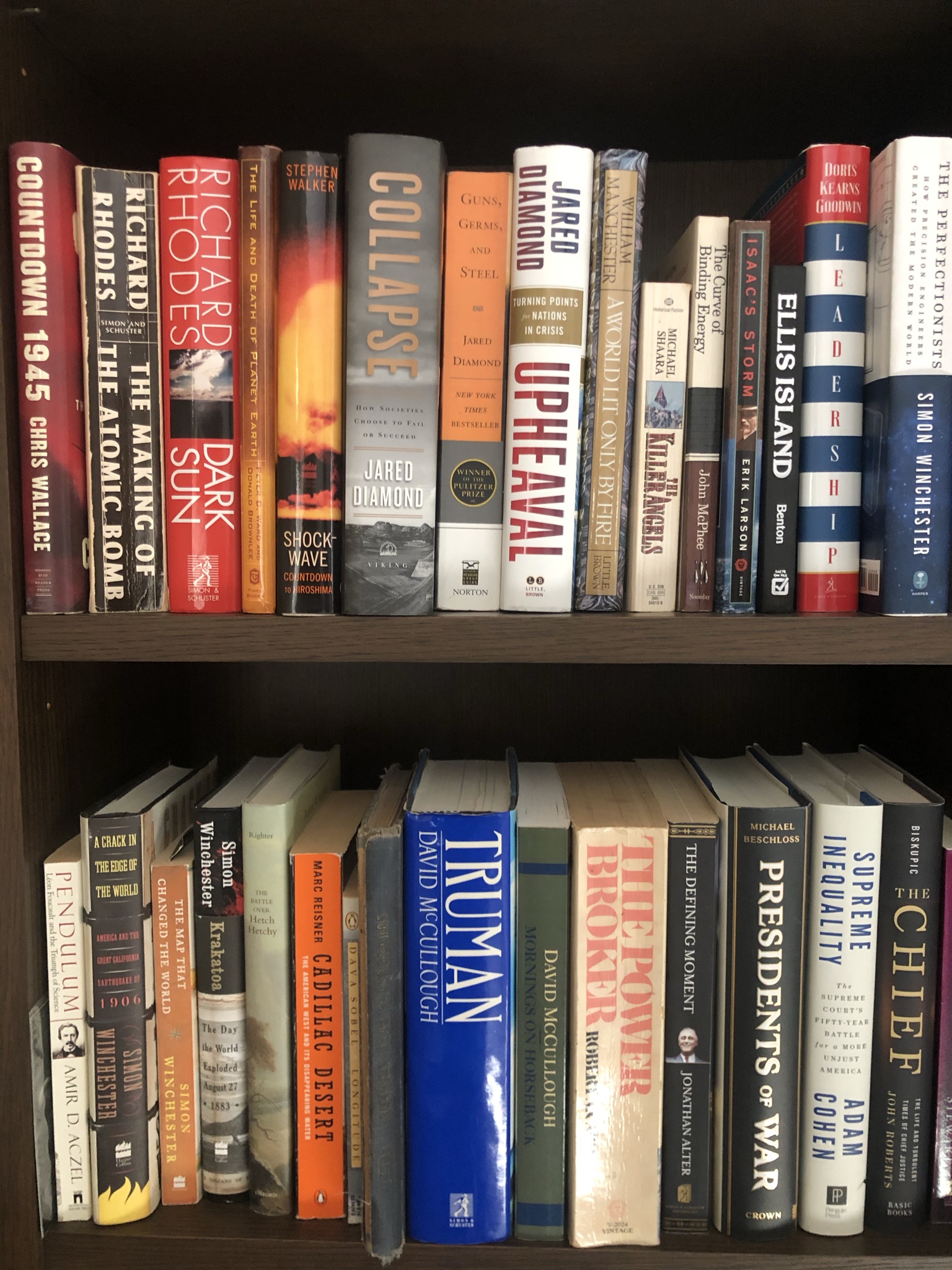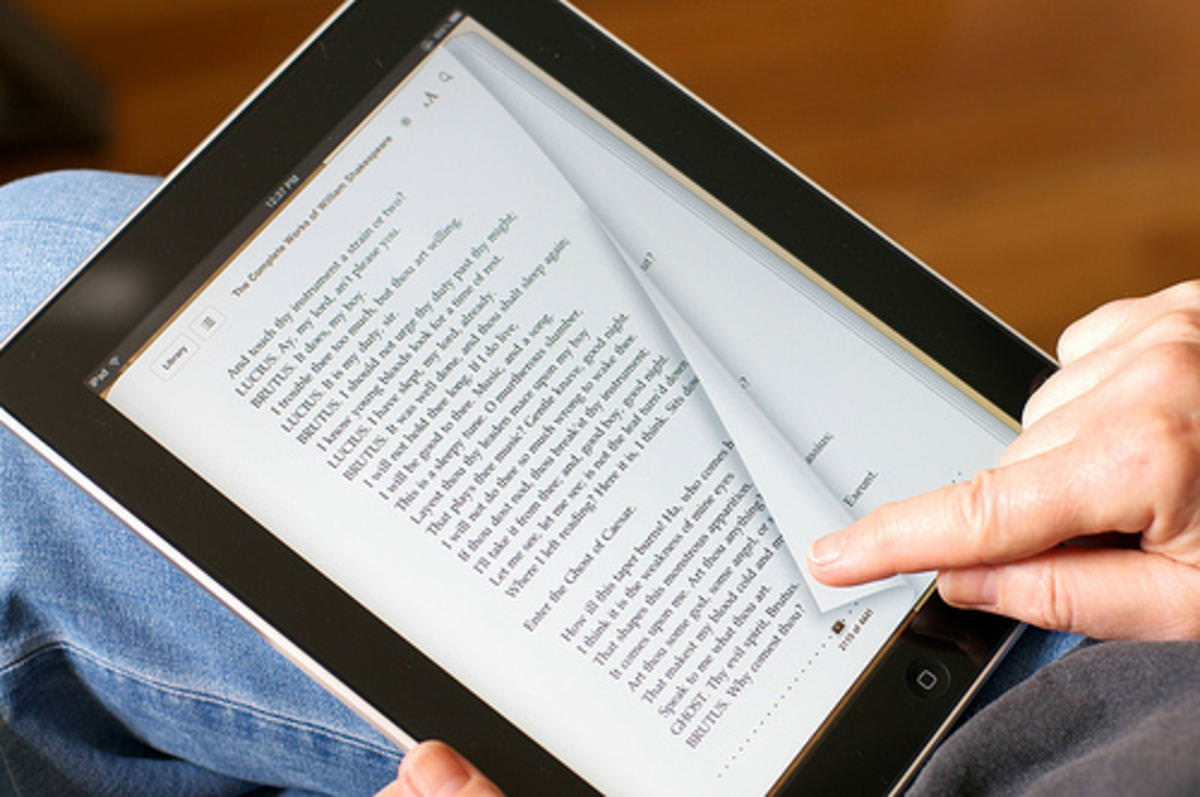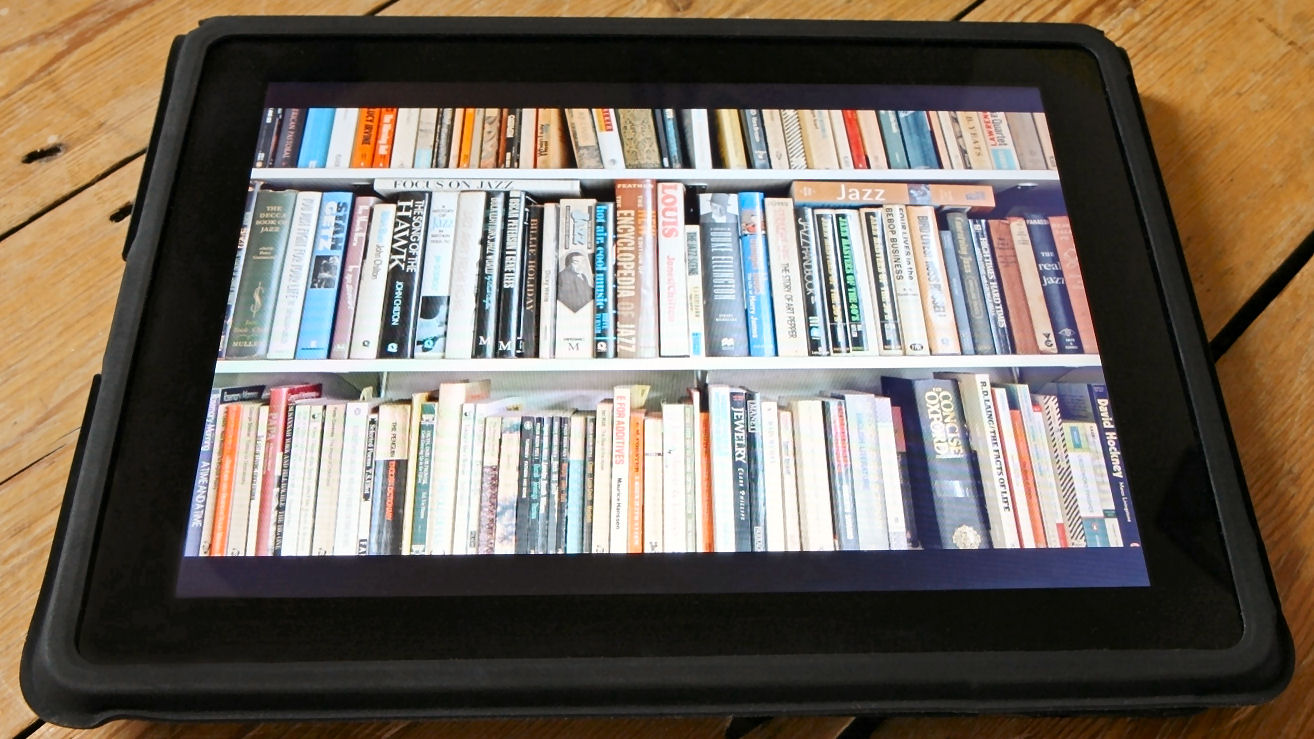I have always loved books. From the time I was a little kid riding my bike to the Glen Ridge Public Library where Mrs. Randall recommended books for me to read, the look and heft of a good book as I read it found its way into my soul.

Over the years I have probably read thousands of books. When Jeff Bezos created Amazon, it became almost too easy to buy books, but when the financial damage to local booksellers became apparent, I returned to bookshops where browsing is half the fun of buying a new book.
When Amazon introduced the Kindle, I thought eBooks were a good idea, but found the original device’s substandard screen quality and small size to be impediments to a pleasant time spent with a book, and so quickly gave it up. The Apple iPad iBook reader improved things, but the book selection was inferior to the Kindle and, besides, either choice was damaging the booksellers.

But then Covid-19 came along and buying physical books became a problem. My local bookseller offered curbside pickup when the store was forced to close but handling anything is a serious issue with a viral disease that is notoriously contagious. And, although Amazon uses robots to handle much of its merchandise, I am not comfortable handling a physical book from its warehouse.
So, I made the difficult decision to switch to eBooks. I started with Apple’s iBook reader, but then discovered that the latest release of the Kindle app for the iPad is superior and of course has the Amazon catalog available. As a bonus, the local library loans Kindle books. My local bookshop now offers eBooks on the Rakuten kobo platform, but it appears to be inferior to other eBook platforms available.
As a lifelong tech junkie who takes his daily dose of news on my iPad, I find reading books with the Kindle app to be satisfying. The quality of the experience was reinforced when I decided to re-read my copy of Richard Rhodes’ The Making of the Atomic Bomb. The book is full of scientific and technical information along with its excellent historical rendition of the development of modern nuclear science, so I needed to look up many terms and theories.
Looking up information while reading an eBook requires nothing more than touching the word in question long enough to bring up Wikipedia or another web resource that explains it. But a regular book makes you stop, put the book down, grab the iPad, start Wikipedia, or whatever, and find the information you want. Even when reading a long novel with

many characters, the mention of a name sometimes has me wondering when that person was introduced, and it is no problem at all to find that in an eBook.
I’ll surely buy more books when “normal life” returns, but not as many as before because I like the convenience of eBooks and I don’t have to worry about running out of shelf space of which eBook readers have an unlimited supply. When a book comes along that I want for my bookshelf, I’ll buy the book, but if unsure of its place on my shelf, I’ll just get the eBook.
Other ebook advantages:
– no problem reading in the spine of a page (esp. a paperback problem)
– will not close when you take your hand off it (another paperback problem)
– weighs less than a hardcover
– easy to read in a dark room
– as easy to read in sunlight as a physical book (Kindle, not iPad)
– you can highlight passages and they are saved “forever” and then searchable